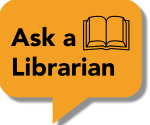
Subject headings are terms assigned by databases to provide a consistent way of describing the subject matter of the resource. In many ways they can be thought of as a tag, where the tag is selected from a standardized list, called a controlled vocabulary, by subject experts. Each database has its own controlled vocabulary that it uses to describe its resources.
Broadly, we have 2 different ways of searching in databases: keywords and subject headings.
| Keywords | Subject Headings |
|---|---|
| User-generated natural language | Database created controlled vocabulary |
| Must appear in title or abstract | Based on the topic of the resource |
| Only exact matches to what was searched, no related terms | Finds related / broader / narrower terms, and weeds out homonyms |
| Useful when topic is new | Useful when looking for relevant results in an established topic |
Searching by keyword means you'll find articles that have the exact letters of a word you typed, somewhere in the title or abstract. This means a search for PTSD will not include resources on trauma, nor on PTS. It also means that homonyms, like "lead" can be confused between the metal and the verb.
Searching by subject heading groups articles together by topics, not words. That means that subject headings can help you find works on "Individual Psychology" by starting with the subject heading "Adler, Alfred".

